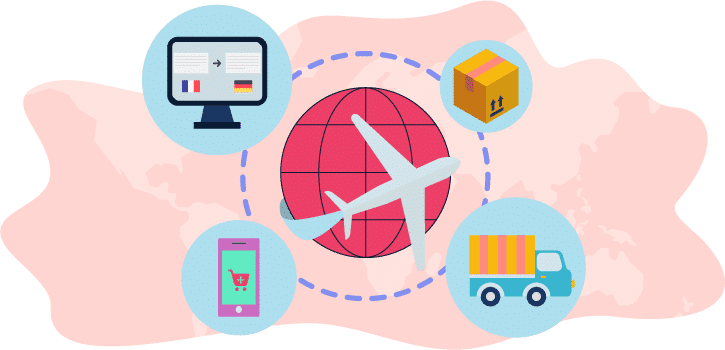
Ecommerce: International Expansion
As ecommerce go on the rise, businesses can now expand their reach beyond their local markets and sell products to customers in other countries. Indeed, expanding your online store to new international ecommerce markets can be a lucrative opportunity, but it also comes with its own unique challenges. Here’s how to starts:
Why International Expansion is Important for Ecommerce
Increased Revenue
Expanding your online store to new international markets can lead to increased revenue streams and growth opportunities. This can help businesses scale their operations and increase profitability.
Access to New Markets
Expanding to new international markets can help businesses access new customer segments and diversify their customer base. This can help businesses reduce their reliance on a single market or product.
Competitive Advantage
Expanding internationally can help businesses gain a competitive advantage over competitors who have not yet expanded into international markets. This can help businesses establish themselves as global players in their industry.
How to Expand Your Online Store to New International Markets
Research Your Target Markets
Before expanding to new international markets, businesses should conduct thorough research on their target markets. This includes researching local regulations, customs, and cultural nuances that may impact their business.
Localize Your Online Store
Localizing your online store is essential for expanding into new international markets. This includes translating your website into the local language, offering local payment options, and adapting your product offerings to meet local preferences.
Develop a Marketing Strategy
Developing a marketing strategy that is tailored to the local market is essential for success when expanding internationally. This includes identifying the most effective channels to reach local customers, such as social media, email marketing, or search advertising.
Partner with Local Experts
Partnering with local experts can help businesses navigate the complexities of expanding into new international markets. This includes working with local distributors, logistics providers, and marketing agencies who have expertise in the local market.
Manage Logistics and Shipping
Managing logistics and shipping is a critical aspect of expanding into new international markets. Businesses should identify the most cost-effective and efficient shipping methods, while also complying with local regulations and customs requirements.
Conclusion
Expanding your online store to new international markets can be a lucrative opportunity for businesses, but it also requires careful planning and execution. By researching target markets, localizing your online store, developing a marketing strategy, partnering with local experts, and managing logistics and shipping, businesses can successfully expand into new international ecommerce markets. By following these tips, businesses can access new revenue streams, gain a competitive advantage, and establish themselves as global players in their industry.
